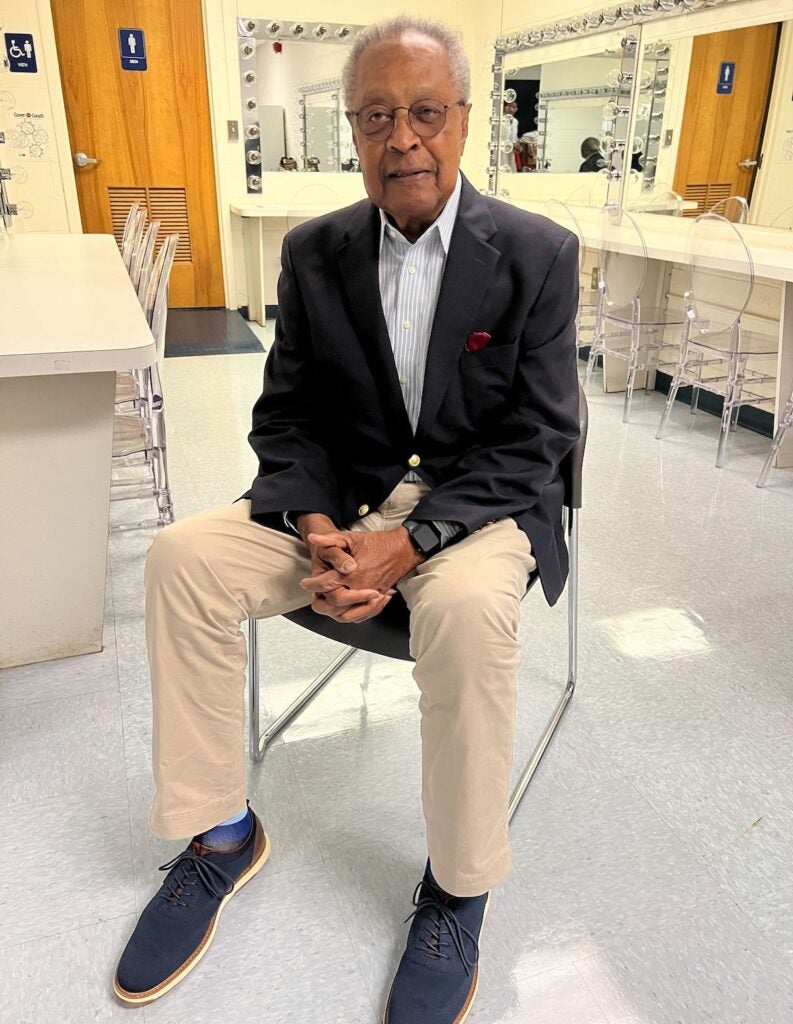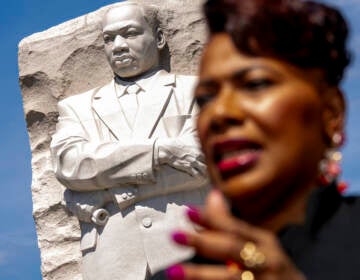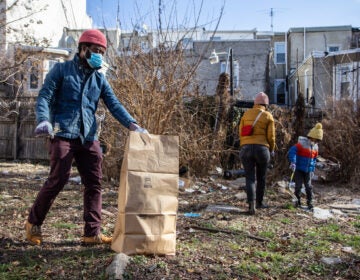Philly native and friend of Dr. Martin Luther King Jr. shares memories, life and legacy in candid conversation with WHYY News
Dr. Clarence Jones, one of King’s friends and supporters, was born in Philadelphia and raised in South Jersey.
Listen 3:36
File photo: Martin Luther King Jr. acknowledges the crowd at the Lincoln Memorial for his "I Have a Dream" speech during the March on Washington on Aug. 28, 1963. Clarence B. Jones, 92, drafted alongside King the “I Have a Dream” speech, considered by many to be among the most iconic and influential speeches of all time. (AP Photo/File)
From Philly and the Pa. suburbs to South Jersey and Delaware, what would you like WHYY News to cover? Let us know!
As the birthplace of the Martin Luther King Jr. Day of Service celebration, Philadelphia plays a special role in honoring the Civil Rights leader.
The city also has another connection to Dr. King’s legacy: Dr. Clarence Jones, one of King’s friends and supporters, was born in Philadelphia and raised in South Jersey.
The 92-year-old author, professor and attorney sat down with WHYY News’ education reporter Amanda Fitzpatrick when he visited Camden County College this past fall. Below are excerpts, edited for length, of the candid conversation about Dr. King’s legacy.
_____
Amanda Fitzpatrick: It is an honor to talk to you and to meet you. For those who are listening, tell me a little bit about what it was like in those times.
Dr. Clarence B. Jones: I was 29 years old when I met Martin Luther King Jr. for the first time. I worked first as a political advisor, then speech writer, then personal lawyer for the next 7 1/2 years until he was assassinated April 4, 1968. What it was like, for me it was meeting generically [he was] described as a Baptist preacher but a very erudite Baptist preacher who had just gotten his doctorate degree in theology.

AF: Do you think people realize the freedom that we have today is because of that work?
CJ: Yes and no. I think the older generation does, I think the younger generation has a disconnection. “In 12 years and four months from 1956 to April 4, 1968, with the exception of the Emancipation Proclamation and the presidency of Abraham Lincoln, Martin Luther King Jr. may have done more to achieve political social justice, civil rights in our country, more than any event or person in the previous 400-year history of the United States.
AF: I always wondered if he were alive today, do you think he would be proud or disappointed?
CJ: Well I think he would be enormously proud of the extent to which the legacy that he built that enabled the Civil Rights Act of 1964 and the Voting Rights Act of 1965 and to see the extent for which subsequent generations have been able to build upon those platforms and take advantage in ways that were not possible before the passage of those acts and the full opportunities that are available in our country.
I think he would be disappointed in the extent in which violence seems to have become normalized.
AF: When you think about marching, when you think about what Dr. King went through, when you think about Selma, all these things, what do you think?
CJ: That we would come all this distance out of slavery, and that we would end up with a substantial number of us killing one another over some nonsense, gun violence. I know of it no other way than he would put his head in his arms, and he would just weep.
Number one killer of Black men are Black men. It’s a health emergency, we’re doing it to ourselves all! It’s the Black killing fields, and we got to stop it. I call it that because in the end it reflects something that is hard for me to face, that killing must be some deeply rooted sense of self-hatred. Why would you want to kill someone that looks like you?
AF: What do you say to young people who are listening in Philadelphia and to Black people?
CJ: Each morning, before you get up and do anything, go put your face close up to the mirror and look in the mirror and say to yourself, I am somebody. Repeat to yourself, I am somebody and then you say that I am somebody and I am beautiful. I am somebody and I am beautiful.

Get daily updates from WHYY News!
WHYY is your source for fact-based, in-depth journalism and information. As a nonprofit organization, we rely on financial support from readers like you. Please give today.





